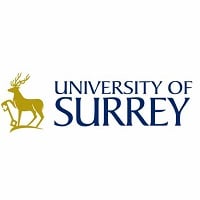Linguistics
Position Details (PhD Program)
The Linguistics programme at the University of Surrey is internationally regarded, and our research takes a strong multi-disciplinary approach, and covers languages and linguistic settings all over the world.
We look at the grammatical structure of languages and the ways in which language-related research can have practical applications, and the consequences of linguistic diversity. Surrey’s research reflects the evolving nature of the discipline, encompassing a critical understanding of technology-enabled language mediation as well as quality, ethical and social dimensions of a fast-evolving language services industry.
Career opportunities
It normally takes three to four years of full-time study or six to eight years of part-time study to complete this PhD in Linguistics at the University of Surrey . You’ll take a confirmation viva at 12-15 months (or 24-30 months part-time) and then be assessed by a thesis and viva examination.You’ll be assigned two supervisors, who you’ll meet with monthly to discuss your progress. Your supervisors will guide you through your PhD and will give you feedback and advice on your work.As a doctoral student, you’ll receive a structured training programme covering the practical aspects of being a researcher, including grant-writing, publishing in journals, and applying for academic jobs.Your final assessment will be based on the presentation of your research in a written thesis, which will be discussed in a viva examination with at least two examiners. You have the option of preparing your thesis as a monograph (one large volume in chapter form) or in publication format (including chapters written for publication), subject to the approval of your supervisors.
Research themes
- Theoretical morphology (including network morphology and paradigm function morphology)
- Morphological interfaces
- Linguistic typology (including canonical typology)
- Language documentation and description (including Austronesian, Nakh-Daghestanian, Niger-Congo, Nilo-Saharan, Oto-Manguean, Papuan, Slavonic, Tibeto-Burman languages).
- Intercultural communication in commercial and educational settings
- Interlanguage/intercultural pragmatics
- Face management and (im)politeness
- Ethnolinguistic minorities
- Language ideologies and practices in transnational areas
- Corpora and language learning



 University of Surrey
University of Surrey